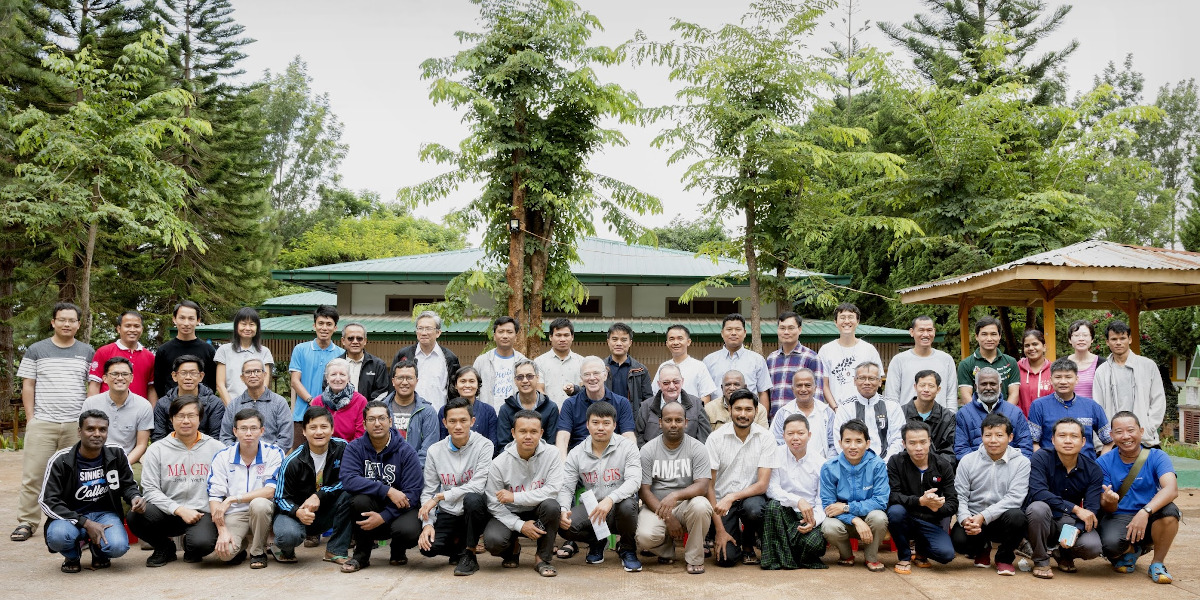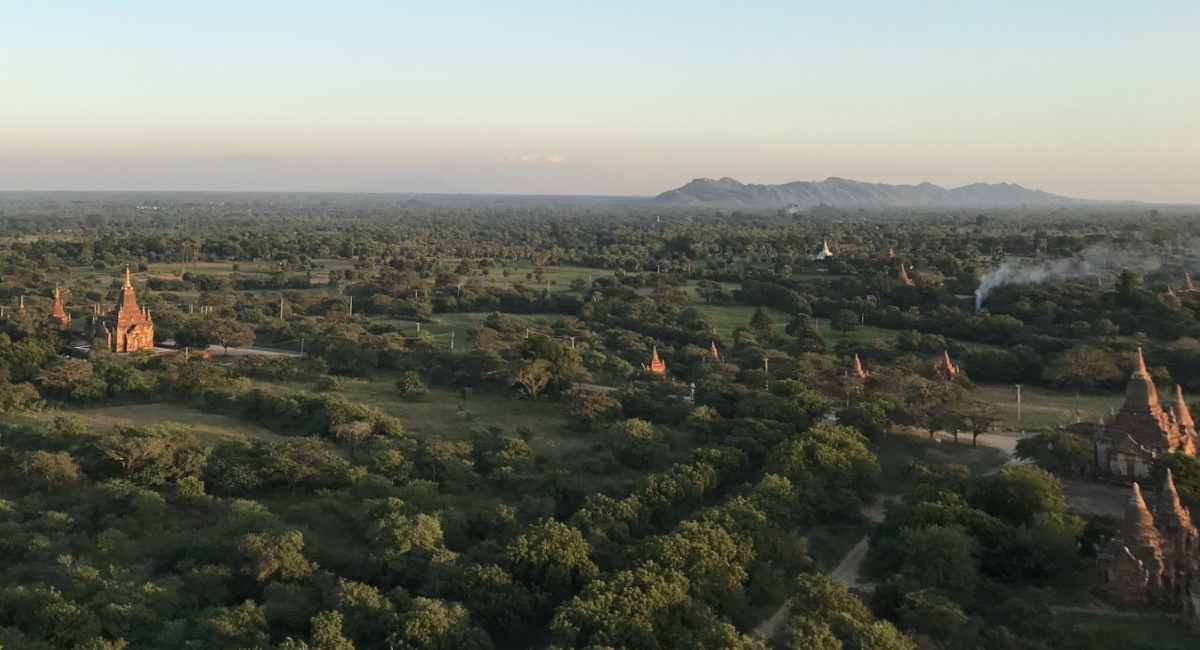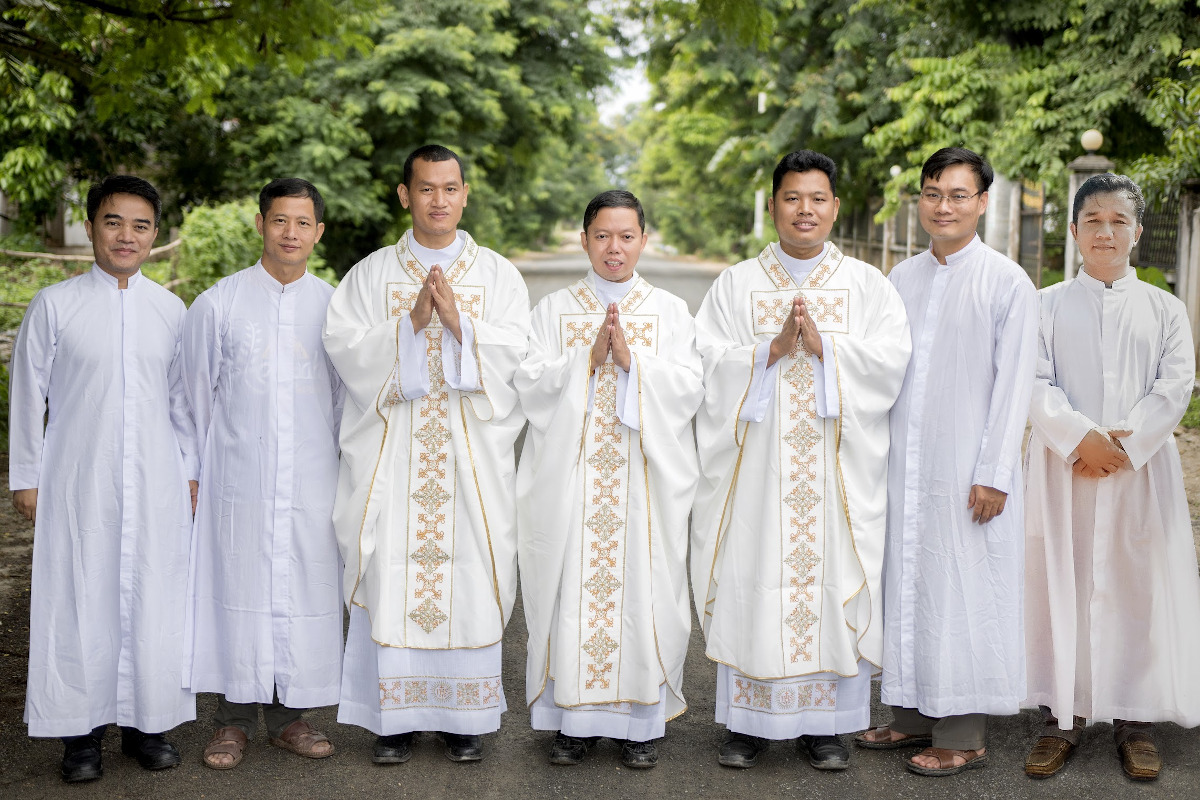Burma has always been an exotic, isolated country. Over the centuries, the Jesuits have undertaken three distinct missions in Myanmar, as Burma is now known. The most recent mission, which is just over 20 years old, was given a boost when in March 2021 the Jesuit mission in Myanmar was named a dependent region of the Philippine Province. An unpopular coup d’état of February 2021 further isolated Myanmar, and of course its inaccessibility is enhanced by the global COVID pandemic. Yet the new link to the Philippine Province promises new openings for the Jesuit fathers and brothers in Myanmar to seek solidarity with others in Asia.
Although Francis Xavier never visited “The Golden Land”, in 1548 he wrote to Ignatius asking that Jesuits be sent to the Kingdom of Pegu, the centre of which was about 40 miles northeast of present-day Yangon. The first Jesuits came to Myanmar from Goa in 1600 as chaplains to Portuguese merchants and Christians from the Malabar Coast and laboured there for 50 years or so. Today, out of a total population of around 56 million, around 740,000 are Catholics. Most are ethnic peoples; descendants of the Portuguese-Burman Christians form a sizeable group among the Catholic population of Myanmar.
A second presence, though short lived, had a deep impact on Catholic life in Burma. From 1958 until the last of them was expelled in 1966, Jesuits from Maryland Province set up and ran the major seminary in Rangoon, now called Yangon. But a 1962 military-led coup d’état established the “Burmese way of socialism”. The political and economic situation deteriorated, leading to significant social upheaval and the expulsion of foreigners.
In the late 1990s, the Burmese bishops went to Rome. Some, who had been seminarians under the Maryland Jesuits, visited Fr General Peter-Hans Kolvenbach and asked the Jesuits to return. This led to the third mission of Jesuits to Burma. Fr Kolvenbach established a mission under his authority, delegating oversight to the Superior of the Thai Region. A dedicated core team, helped over the years by volunteers, mostly from around Asia, helped to recruit and form those who applied to the novitiate. The foreign Jesuits from Korea, Thailand, Malaysia-Singapore, from several provinces in India, from Vietnam, Australia and Indonesia, among others, came to help. Now, 36 members of the newly established Myanmar Dependent Region are native to Myanmar and 12 are from other countries. About 20 are currently studying abroad, either in Indonesia for Philosophy, and for Theology in Manila, with several also in Rome.
Since the very beginning, apart from recruitment and formation of Myanmar Jesuits, priority was given to education. St Aloysius Gonzaga Institute of Higher Education in Taunggyi was opened even before the novitiate, and continues today with support from Ateneo de Davao University. Another school for teaching English, Campion Institute, was set up in 2003 in Yangon. The Myanmar Leadership Institute was started in 2019 with assistance from Ateneo de Manila University. When Cyclone Nargis struck Myanmar in 2008, leaving thousands dead and crops and houses destroyed, Jesuits engaged in a major response, opening the way for initiatives in the social field and nationwide with the Myanmar Church. In recent years the Mission undertook social and pastoral services in two dioceses in Kachin state.
The Jesuits of Myanmar look eagerly to firming up this new relationship with the Philippine Province, while at the same time expectations are modest. First of all, the relationship gives the Myanmar mission a juridical status in the Society, but it also represents a new maturity for the region and greater possibility to contribute to the Society’s universal mission. Fr Joseph Aik Maung, one of the first Myanmar Jesuits to be ordained, comments on this. Joseph served for six years in parish life before Tertianship in Australia and is now studying for a Master’s degree in Community Development at Ateneo de Davao.
“Coming to this point of legal identity in the Society of Jesus as a Dependent Region of the Philippine Province is indeed historic. It is more than receiving a legal identity; it is a growth to be thankful for and an opportunity to move forward in depth. Although the status change happened around the time of the Covid-19 pandemic without much physical changes happening, the identity as dependent region opens more opportunities as well as responsibilities in the little tormented part of the mission field of the Lord with Ignatian heritage.”

Myanmar Mission Forum, 2019
Philippine Provincial, Fr Primitivo E Viray Jr reflects on the move as follows:
The opportunity for the Philippine Province to assist the Myanmar mission came about through the efforts of Fr Antonio Moreno, JCAP President. He invited the leadership of the Myanmar mission and the Philippine province to consider entering into this arrangement of the former becoming a dependent region of the Philippines. Fr Moreno took to heart Fr General’s instructions to re-examine our governing structures so that it can respond better to our mission. For us in the Philippine Province we saw this as an opportune moment to pay forward the generosity of the Spanish and American provinces who supported the growth of the Philippine mission until it became a province. Thus, we welcomed this graced moment to assist the Myanmar Region in whatever way we can, recognizing our own limitations of personnel and finance. We know in our hearts that in the end our involvement with the Myanmar Region will teach us how to better serve and accomplish our mission as one Society in the Jesuit Conference of Asia Pacific.
The incoming Myanmar Regional Superior, Fr Girish Santiago, who is originally from the Gujarat Province in India, commented enthusiastically on the arrangement:
From the childhood stage (as a mission) Myanmar has reached the youthful stage (as a dependent region) where the youth needs to be guided, supported, and accompanied. Rightly, we hope, the Philippines Province will do such!
Neither partner will be unaffected by this new structure of relationship. Already partnerships with Philippine Jesuit institutions are helpful for Myanmar. Friendships built while Myanmar Jesuits live at Arrupe International Residence and study at Loyola School of Theology help to consolidate partnerships. Little by little as Myanmar Region and Philippine Province accompany one another, graces, alliances, and apostolic possibilities will surely follow.
This article was first published in The Jesuits in Asia Pacific 2022 magazine.









